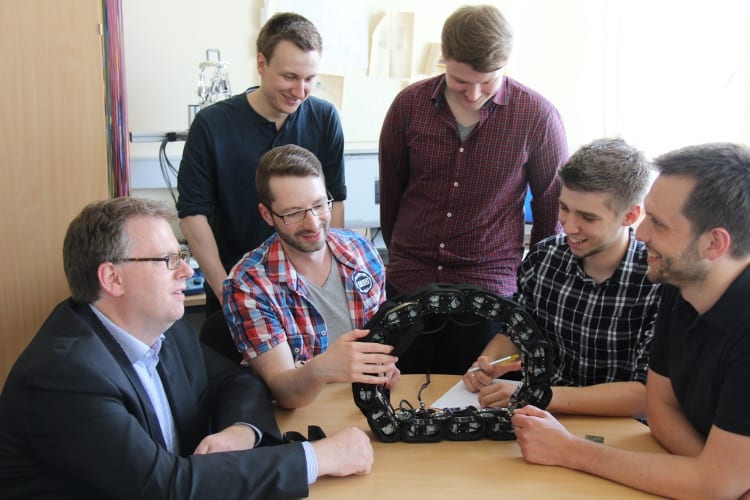Dr Catherine Hobbs, Head of Department for Engineering Design and Mathematics at the University of West England (UWE Bristol), looks at the challenges of the UK engineering skills gap.
A new wave of students has been graduating over the past few weeks. They have been attending award ceremonies knowing they face a challenging future, entering the workplace at a time of turmoil and upheaval.
But, as the country struggles to resolve its relationship with the EU, one thing we know for sure is that improving UK productivity and competitiveness is now more important than ever. And that depends on graduates with the right skills and mindset to compete in the high-tech global knowledge economy.

To succeed, the UK needs a talent revolution. We are going to need over 100,000 new professional scientists, engineers and technologists each year until 2020. We know that 80 per cent of new jobs are in high-skill areas, placing universities and graduates at the heart of the future workforce.
The Higher Education Statistical Agency (HESA) recently brought out its annual UK graduate ‘employability’ figures. The results show that 71 per cent of graduates were employed in professional occupations within six months of graduating. However, when we look at areas with skills shortages, such as engineering, the figures rise to 84 per cent.
But this only tells half the story. As universities, we need to ensure that students have the underpinning knowledge that is then applied in practice. We have to provide an environment where they can use their knowledge in a way that will help them in a work place setting. It is about developing flexible, creative, well rounded individuals.
It’s these qualities employers are looking for. We know from the same HESA figures that more than 90 per cent of UWE Bristol graduates that worked with an employer during their degree found professional and managerial jobs. Engaging with business has helped UWE Bristol achieve one of the best graduate employment records in higher education. This is also linked to the fact we have the largest paid internship programme in the UK, arranging over 2,000 internships since 2010. These are particularly valued by small businesses and those students from poorer backgrounds who can’t afford to work for free.

Increasingly it’s not good enough for graduates to just to have knowledge. It’s not good enough to just have the information, you have to be able to apply it in different contexts. And that’s where you move into the application of knowledge and the extension of knowledge.
As universities, we can’t do this in isolation. A report released last month, featuring comments from the CBI, Airbus UK and the Institute of Directors, called on universities to forge closer links with business to bridge the skills gap and increase UK productivity. Universities need to teach not just the functional skills, but focus on real world learning experiences that allow graduates to be adaptable, enterprising and ready for work.
We need to collaborate with business, the public sector and government to map skill shortages, develop courses and provide internships and work placement opportunities; such as the GE (Aviation) joint degree apprenticeships running at UWE Bristol in collaboration with Gloucestershire College, Airbus and City of Bristol College.
Skills mapping enables universities to create and expand courses and focus more effectively on particular specialisms. Following consultations with engineering businesses four years ago, we doubled the number of engineering graduates we produced to meet the needs of GE (Aviation), Airbus, GKN Aerospace and the many SMEs that feed into the aerospace supply chain in the region. And still Engineering UK predicts 16,000 more engineers will be needed in our region of South West England by 2022.

Whatever the future holds for post-Brexit Britain, graduates will require adaptable, transferable talents such as complex problem-solving, entrepreneurship and emotional intelligence. We need to move away from teaching purely functional skills that are outdated almost as soon as they are learned and focus on real-world learning experiences.
From research and innovation to mapping the skills of the future, it will be progressive, collaborative universities that will fulfill their role as key drivers of our country’s productivity and economic growth.
***
(1) UWE's report





Project to investigate hybrid approach to titanium manufacturing
What is this a hybrid of? Superplastic forming tends to be performed slowly as otherwise the behaviour is the hot creep that typifies hot...